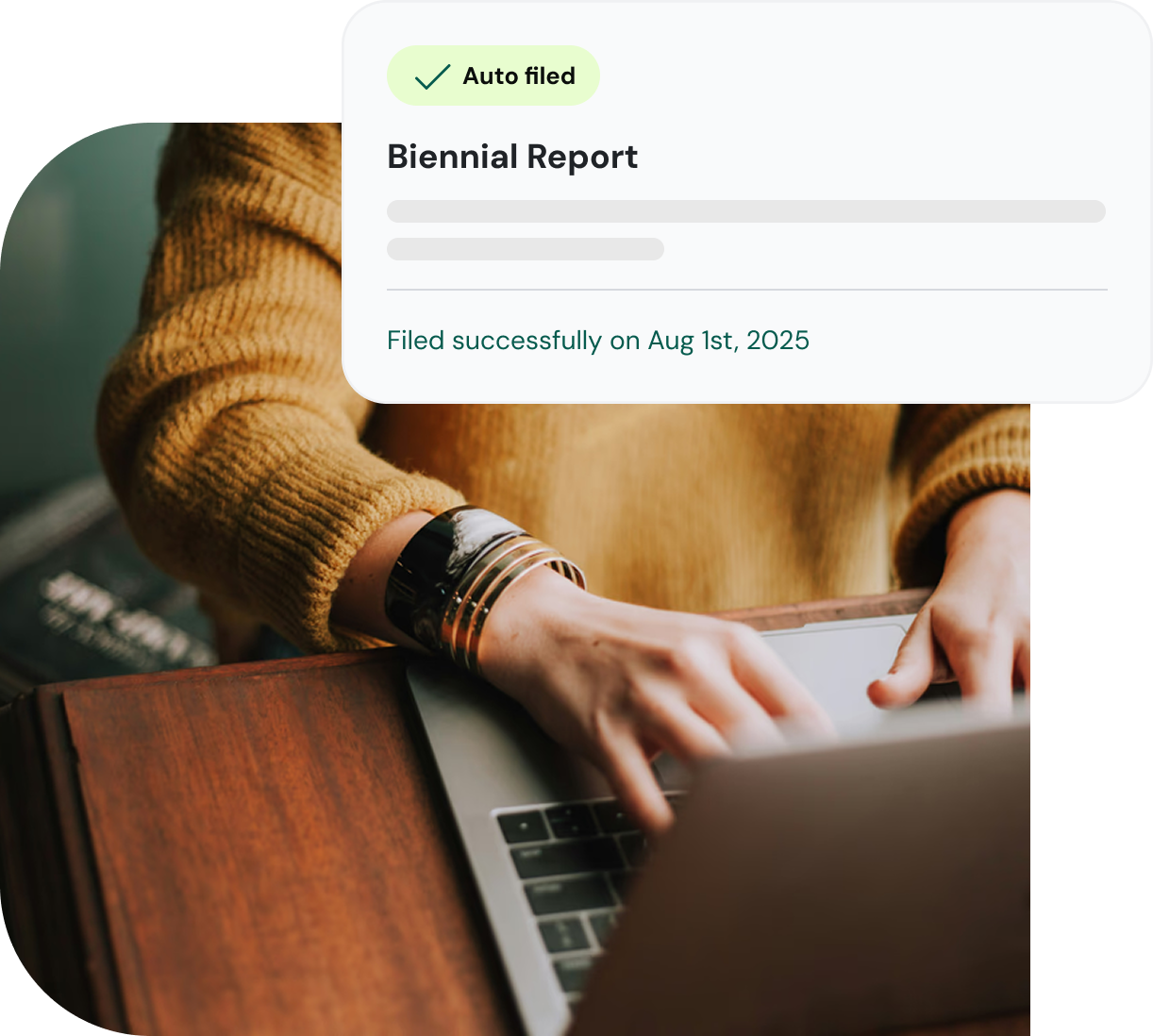Wisconsin Annual Report Guide: A Comprehensive Overview
Keep your Wisconsin business compliant with a streamlined, accurate annual report filing. Below you’ll find exactly who files, what to include, when it’s due, and how to submit—fast.

.webp)
- Domestic Corporations: Businesses incorporated within the state of Wisconsin.
- Foreign Corporations: Businesses incorporated outside of Wisconsin but authorized to conduct business within the state.
- Non-stock Corporations: Typically, non-profit organizations that do not issue stock.
- Limited Liability Companies (LLCs): A popular business structure that combines the limited liability of a corporation with the flexibility and pass-through taxation of a partnership.
- Limited Partnerships (LPs): Partnerships with at least one general partner and one or more limited partners.
- Limited Liability Partnerships (LLPs): Partnerships where all partners have limited liability.
- Cooperative Associations: Organizations owned and controlled by their members for their mutual benefit.
- Statutory Trusts: A legal entity created under specific state statutes, often used for holding assets.
- Entity legal name (as registered)
- Registered agent name & Wisconsin physical address (no P.O. Boxes)
- At least one officer/director/member/manager (name & address)
- Brief statement of the nature of business








- Formed in Jan–Mar → Due March 31
- Formed in Apr–Jun → Due June 30
- Formed in Jul–Sep → Due September 30
- Formed in Oct–Dec → Due December 31
- Corporations and LLCs: $25
- Non-stock Corporations and Limited Partnerships: $10
- Cooperative Associations: $15
- LLPs: $25 per partner, with a minimum fee of $25 and a maximum fee of $250
- Statutory Trusts: $50




Step-by-Step Filing Process
that paper filings are not accepted, and all entities must utilize the Department of Financial
Institutions (DFI) website for submission. The general process involves the following:
Step 1
Go to the DFI online filing
portal
Step 3
Search your entity
by name or ID
Step 5
Add any required
officer/member info
and business
purpose
Step 7
Submit and save
your confirmation








%201.47.16%20p.m..png)
Step 2
Log in or create an account
Step 4
Review pre-filled details and update as
needed
Step 6
Pay the fee by card or e-check
Step 1
Go to the DFI online filing
portal

Step 2
Log in or create an account

Step 3
Search your entity
by name or ID

Step 4
Review pre-filled details and update as needed

Step 5
Add any required
officer/member info
and business purpose

Step 6
Pay the fee by card or e-check

Step 7
Submit and save
your confirmation







- Corporations (domestic): Legal name, registered agent and office address, at least one officer or director, brief business description. Fee: $25.
- Corporations (foreign): Legal name, registered agent and office address, at least one officer or director, brief business description. Fee: $65.
- Non-stock corporations (typically nonprofits): Legal name, registered agent and office address, at least one officer or director, brief description of activities. Fee: $10
- LLCs (domestic): Legal name, registered agent and office address, members or managers (depending on management structure), brief business description. Fee: $25.
- LLCs (foreign): Legal name, registered agent and office address, members or managers (depending on management structure), brief business description. Fee: $65.
- Limited Partnerships (LPs): Legal name, registered agent and office address, general partner details, brief business description. Fee: $10
- Limited Liability Partnerships (LLPs): Legal name, registered agent and office address, partner information, brief business description. Fee: $25 per partner (minimum $25, maximum $250)
- Cooperative associations: Legal name, registered agent and office address, officer or director details, brief description of cooperative activities. Fee: $15
- Statutory trusts: Legal name, registered agent and office address, trustee information, brief description of operations. Fee: $50
- Immediate $15 late fee if you miss the due date
- Continued non-compliance: administrative dissolution (domestic) or revocation (foreign)
- Loss of good standing and name protection
- Banking and contracting obstacles
- Administrative dissolution/revocation; reinstatement requires fees and all past-due reports








While Wisconsin has simplified the process by requiring online submissions, ensuring accuracy and timely filing remains essential to avoid penalties. For businesses that prefer to outsource these compliance tasks, Palm can successfully manage the process by providing:
- Deadline tracking and proactive reminders
- Accurate, expert-prepared filings
- Registered agent services
- Multi-state portfolio management
- Secure records and renewal continuity
FAQ
filings in Wisconsin
Is online filing mandatory for all entities in Wisconsin?

Yes, annual reports in Wisconsin must be filed online through the Department of Financial Institutions (DFI) website. Paper filings are not accepted.
What happens if I miss my annual report filing deadline?

Missing your deadline can result in a $15 late fee. More significantly, domestic entities may face administrative dissolution, and foreign entities may have their registration revoked, leading to a loss of legal standing to conduct business in Wisconsin.
How do I determine my annual report due date?

Your annual report is due at the end of the calendar quarter in which your business was originally formed. For example, if formed in January, February, or March, your report is due by March 31st.
What information do I need to file my annual report?

You will generally need your entity's name, registered agent's name and address, the name and address of at least one officer/director/equivalent, and a brief statement of your business's nature.
Can I update my registered agent information on the annual report?

Yes, the annual report is the appropriate place to update your registered agent and registered office address, as well as other key business information.
Ready to file your
Wisconsin Annual Report?
Palm makes it simple with deadline tracking, expert preparation,
and full compliance support for businesses across Wisconsin.